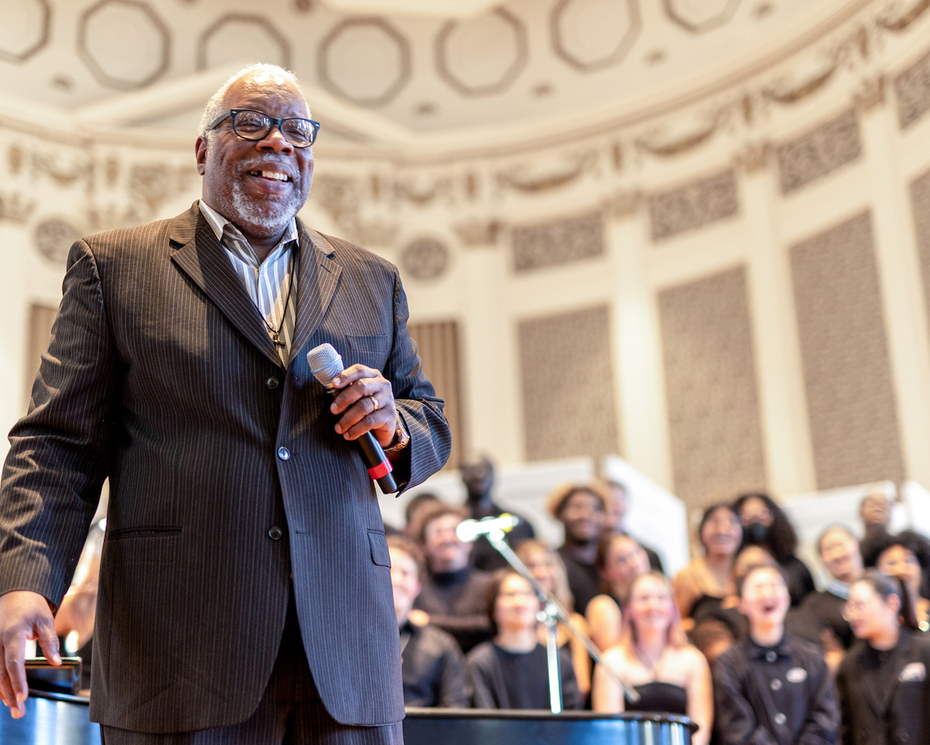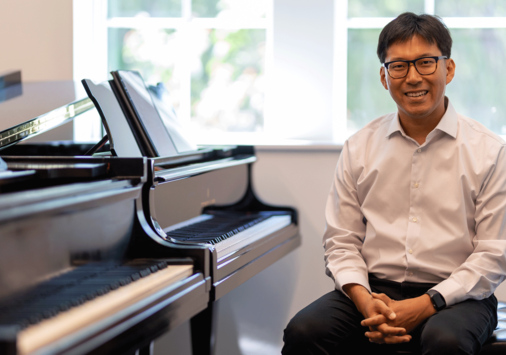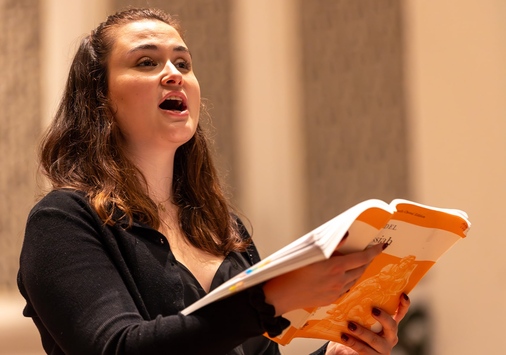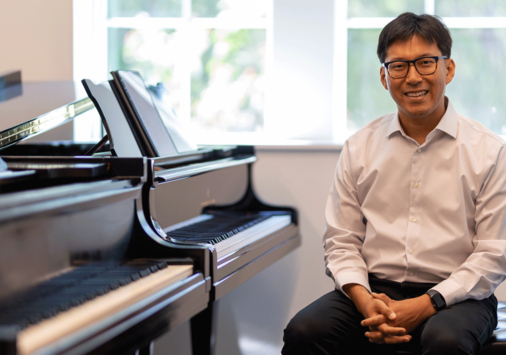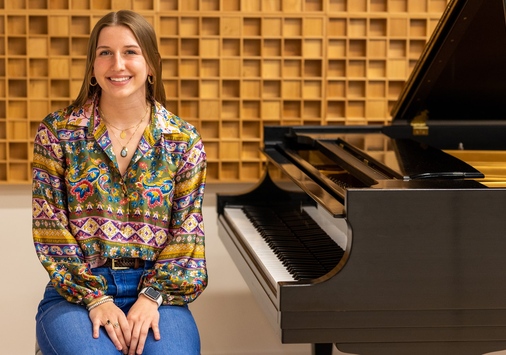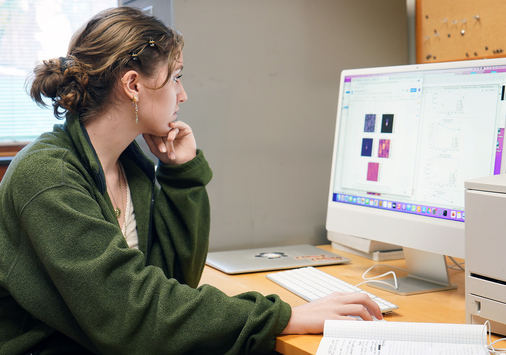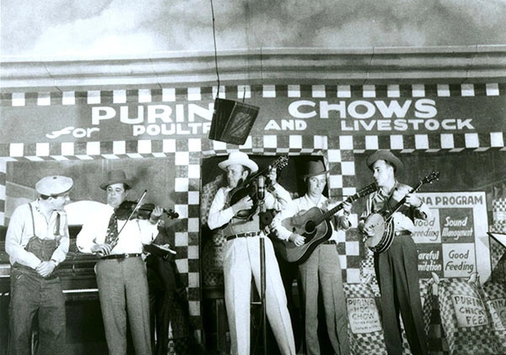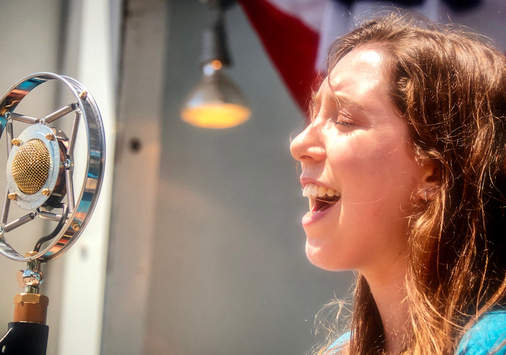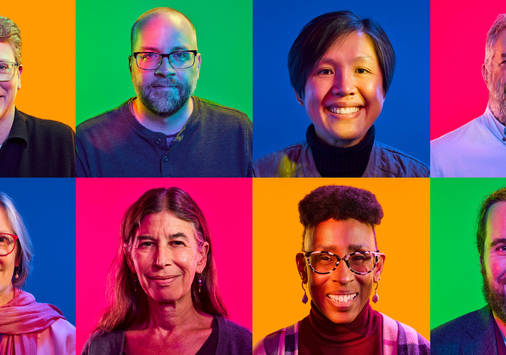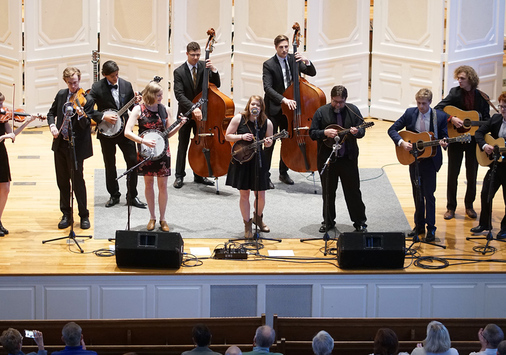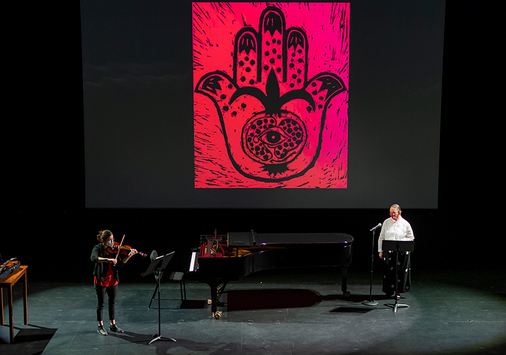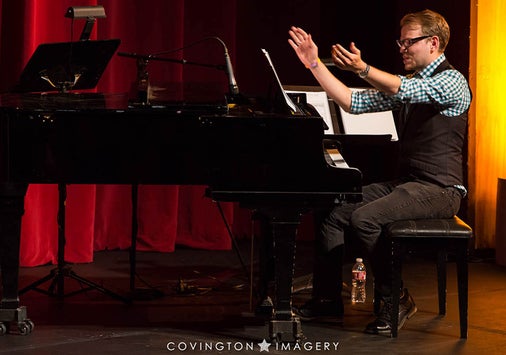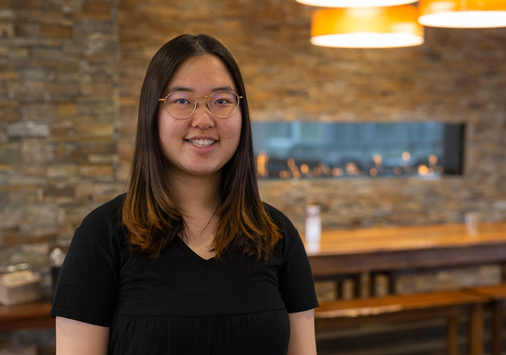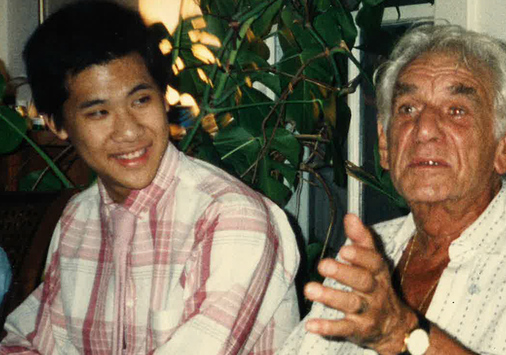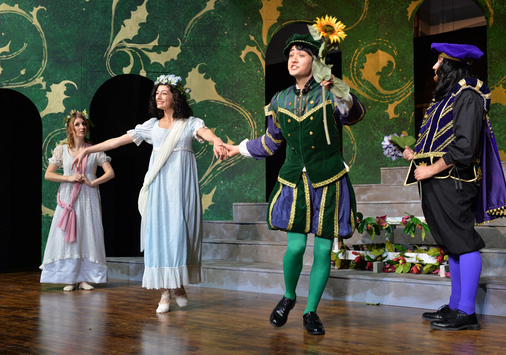Ansley Maynard ‘23, Global Health major and American Roots minor, grew up around American Roots, frequenting her family’s mountain house in the Appalachian mountains with bluegrass as the only music option. However, she didn’t start playing until she arrived at Denison. Ansley has learned a lot more than music during her time with the American Roots program. She shared her thoughts in a speech that was a true testament to her time at Denison, the program, her growth as a musician, and how she turned her first major musical mistake into a learning experience.
When I started at Denison I appreciated my own affinity for and knowledge of music more than the music itself. I was determined to be the best—hyper fixating on my own pitch and technique for performance and getting annoyed at anyone or anything that hindered my voice from sounding anything but excellent.
During my first semester on campus, I spent most rehearsals observing. I wondered how the upperclassmen were so tolerable—dare I say accepting—of anything below exceptional. It stressed me out.
During the songs, they would exchange glances during an offbeat solo or a ballad sung jarringly flat, but they would keep playing the music—and despite the odds, they would play it well. But I could still hear the offbeat player, and so could the audience. It sounded bad, though the rest of the band was completely in tune & on rhythm. I couldn’t stand how they would let one instrument or singer ruin the sound of their accomplished talent. It frustrated me.
That was, until Friday, December 6th, 2019: The Denison University Bluegrass Ensemble’s Tribute to Bill Monroe Winter Concert. I, one of the five guitar players, was unintentionally standing right in front of the guitar mic, strumming to a ballad sung by an upperclassman. I noticed the two other guitar players exchanging the glance (the same one they exchanged during the offbeat fiddle solo) and wondered who was off this time. The song ended and the senior lead guitar player whispered, “You’re playing offbeat. You need to strum on the downbeat not the upbeat. And you should tune your guitar.”
I was mortified. It hit me: for the past three months, I had been “observing” the band, soaking up all of the flaws in their sound, all the while I had been strumming on the complete opposite beat and had only tuned my guitar once in the span of the 3 months—seriously. I wasn’t observing at all. I was judging something I had no business to judge in the first place because I knew nothing about bluegrass music, my bandmates, or even how to tune a guitar.
With five more songs left in the set, I had a banjo-sized lump in my throat. The lump got bigger with every hushed upbeat as I had realized how loud my strums must’ve sounded. At that moment, I began to listen. I didn’t observe, I didn’t judge. I didn’t care about how the fiddle player sounded—I cared about playing with the band. I cared about the blend. During those last five songs, I learned more about bluegrass music, teamwork, and leadership than I ever had. With my ears I cradled every note played by each instrument, consuming and digesting the sound coming from the people around me. Up until that point, my experience in Bluegrass Ensemble was about me: it stressed me out and frustrated me; I observed; I judged; I was embarrassed.
I finally realized the nature of the group. The bluegrass ensemble is a community played out in song. If and when the song goes awry, what matters most is how we hold each other up to a high standard, even while compassionately encouraging each other to try new things. Adam Schlenker, our director, has cultivated a community of young musicians and friends and has taught us to hear each sound from each instrument and connect through playing music.
Adam has been an amazing mentor and role model. He puts so much time and effort into this program and the people in the program. His dedication and passion for American Roots music is inspiring and contagious. His patience and grace is the foundation of the group’s closeness and ability to be vulnerable with each other.
I’ve had a lot of people approach me who say, “I want to join the bluegrass ensemble but I don’t know how to play an instrument,” or” I’m not musically inclined” and I always say, “No. it literally doesn’t matter. Come join, it’s awesome,” and I think they think I’m saying that out of courtesy. But I truly mean it. Everyone should get a chance to experience what we are so lucky to experience three times a week. I am so grateful for the bluegrass ensemble and everything it has taught me and all of the friendships I have made throughout my time here.
